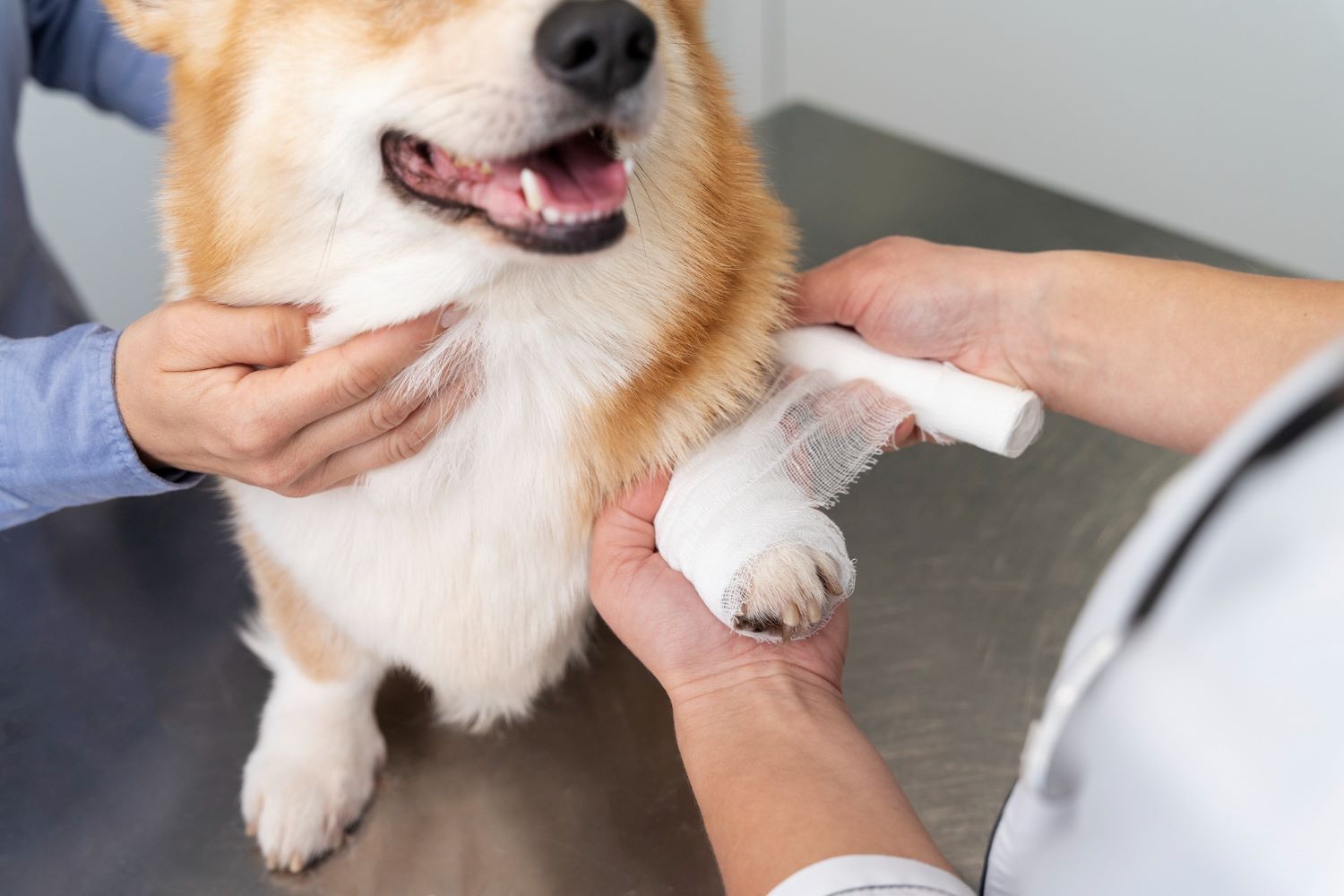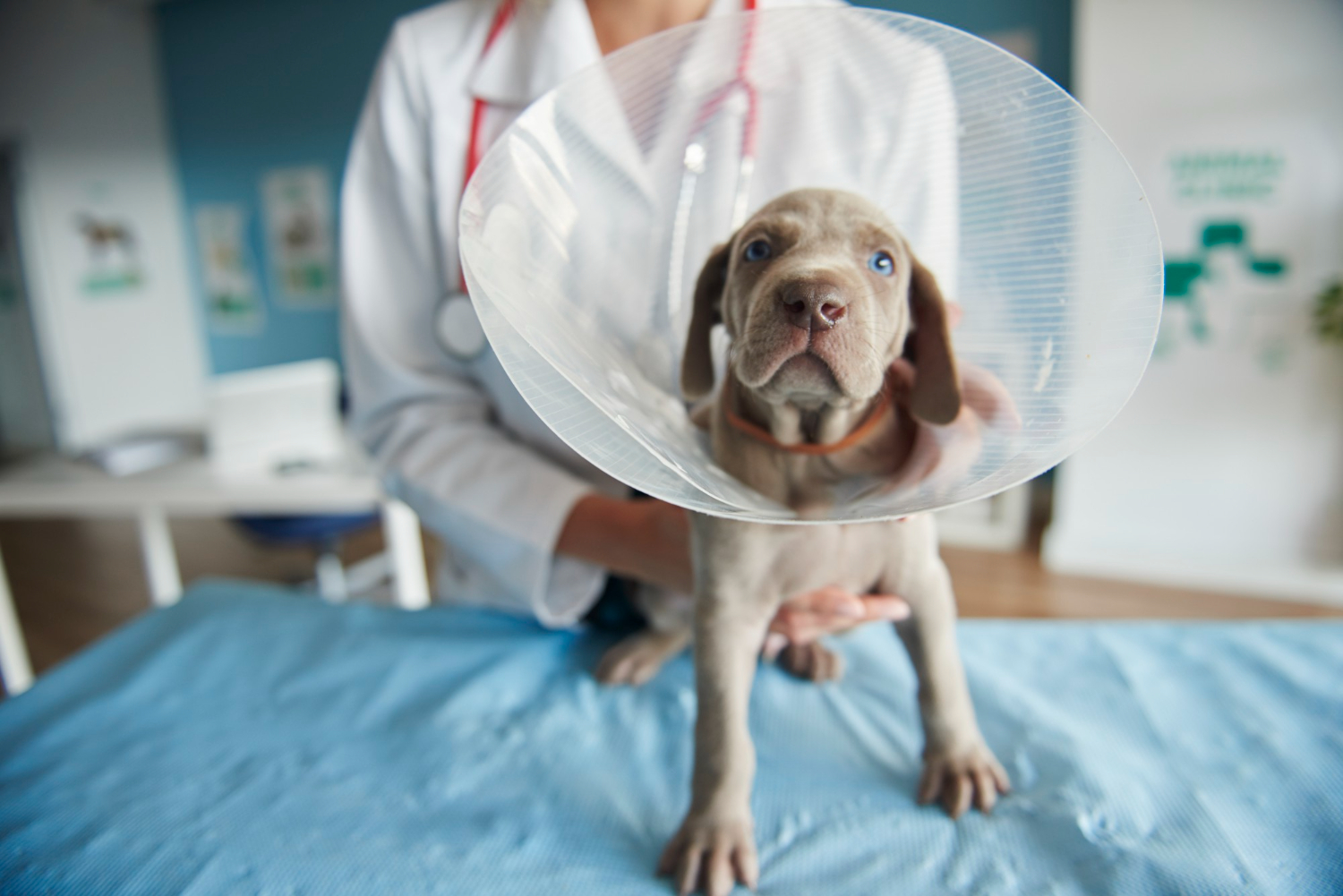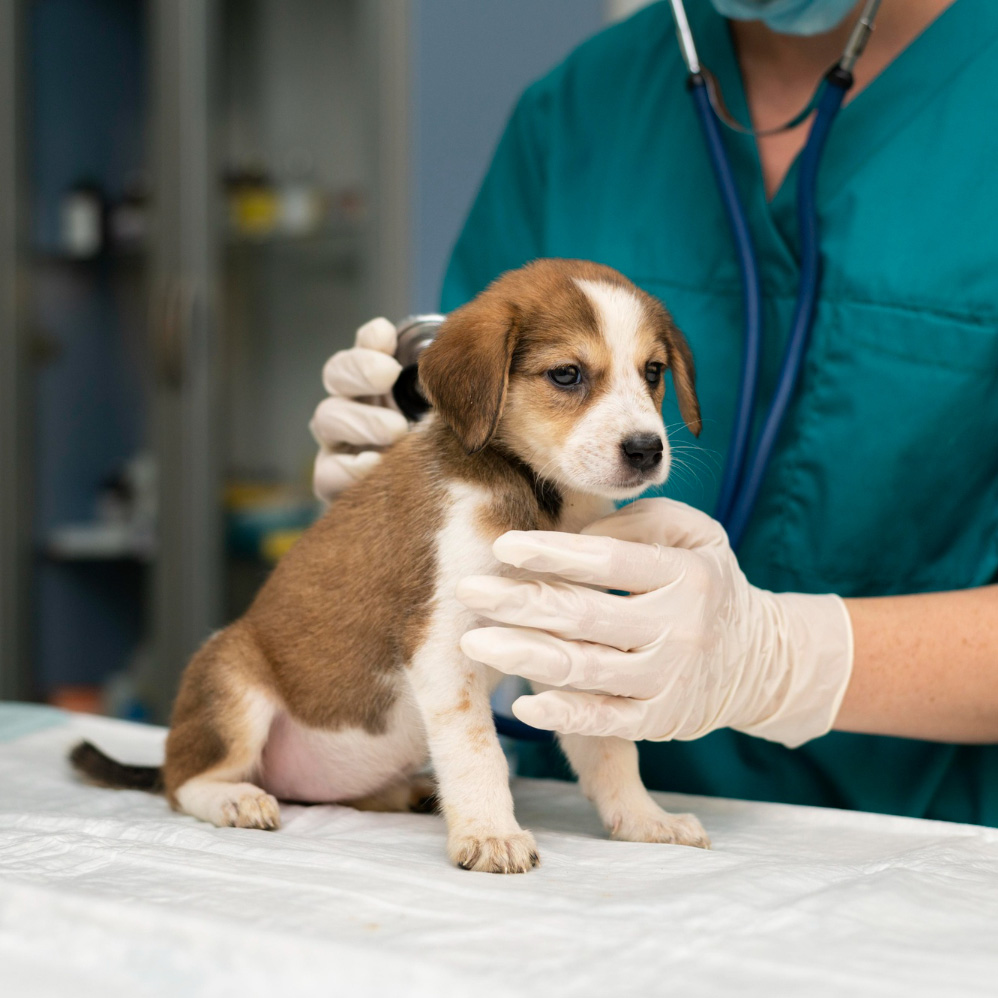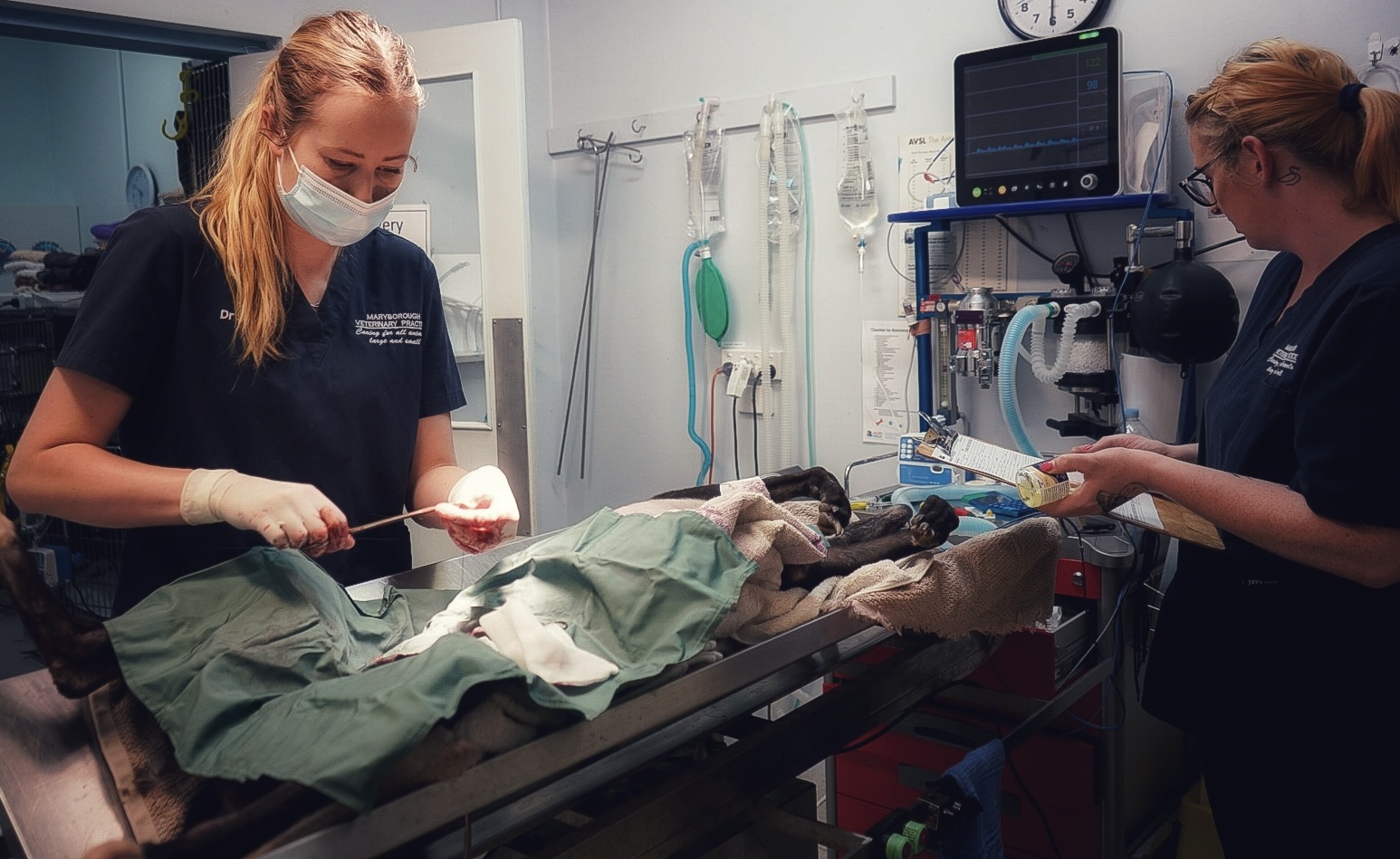We perform a wide range of surgery at the clinic. This includes:
- Desexing (dogs and cats, as well as rabbits and pocket pets).
- Dentistry- including scale and polishes, and extractions
- Lump and tumour removals, simple to complex involving reconstructive techniques
- Eye surgery
- Wound repairs
- Exploratory surgery
- Caesarean Section


Desexing Surgery
Desexing surgery is performed to prevent a number of issues, including medical conditions affecting the reproductive tract (tumours and infections) and unwanted pregnancies. Our vets routinely perform this surgery in dogs, cats, rabbits and other species.
In males, this surgery is called a castration. A small incision is made and both testicles are removed. Castration of male animals is commonly performed to prevent unwanted behaviours such as urinating on objects, aggression and wandering. It also prevents prostate issues in older dogs.
In Females, this surgery is called a spey. The vet opens the abdominal cavity and removes the ovaries and the uterus entirely. This is a larger surgery than a castration but is still performed very commonly and has a very low complication rate.
Before surgery:
Please ensure to book in with reception and arrive on time for admission.
No food the night before after 8pm. Water should still be provided. (Rabbits must still have food provided)
For older animals, a pre anaesthetic blood test may be necessary.
Animals are given intravenous fluids to support their blood pressure during surgery.
Please discuss with your veterinarian or veterinary nurse if you have any concerns.
After surgery:
It is vital you keep your pet quiet to reduce the chance of complications.
Your pet will be awake, but generally quieter than normal. Please give your pet some TLC while they recover from the anaesthetic.
The evening you bring your pet home after surgery, please offer them a small meal, generally a quarter to half of their usual serving.
It is critical to not allow your pet lick or chew the stitches or wound – we can provide you with a Elizabethan collar if you think your pet may do this.
Please limit the amount of exercise your animal does until the wound is fully healed (10-14 days).
No swimming or baths until the wound is healed.
We administer all animals with a combination of pain relief. However, if you feel your animal is still in pain please do not hesitate to contact us.
Please monitor the wound for discharge, redness, swelling and bleeding.
If you have any concerns please do not hesitate to contact us.


Advanced soft tissue surgery
Maryborough Vets is proud to be able to offer a number of complex soft tissue surgeries which are not commonly performed in general practice. Dr James Chadwick has undertaken extra training in small animal surgery and a is member, by examination, of the is Small Animal Surgery chapter of the Australian & New Zealand College of Veterinary Scientists. He works with the other veterinarians at the clinic to get the best outcomes for patients. Some of the surgeries include (but not limited to):
- Complex skin reconstruction (skin grafts and axial pattern flaps
- Laryngeal paralysis surgery (tie back)
- Total ear canal ablations (TECA BO)
- Perineal hernia surgery
- Salivary gland mucoseal removal
- Anal gland removal

